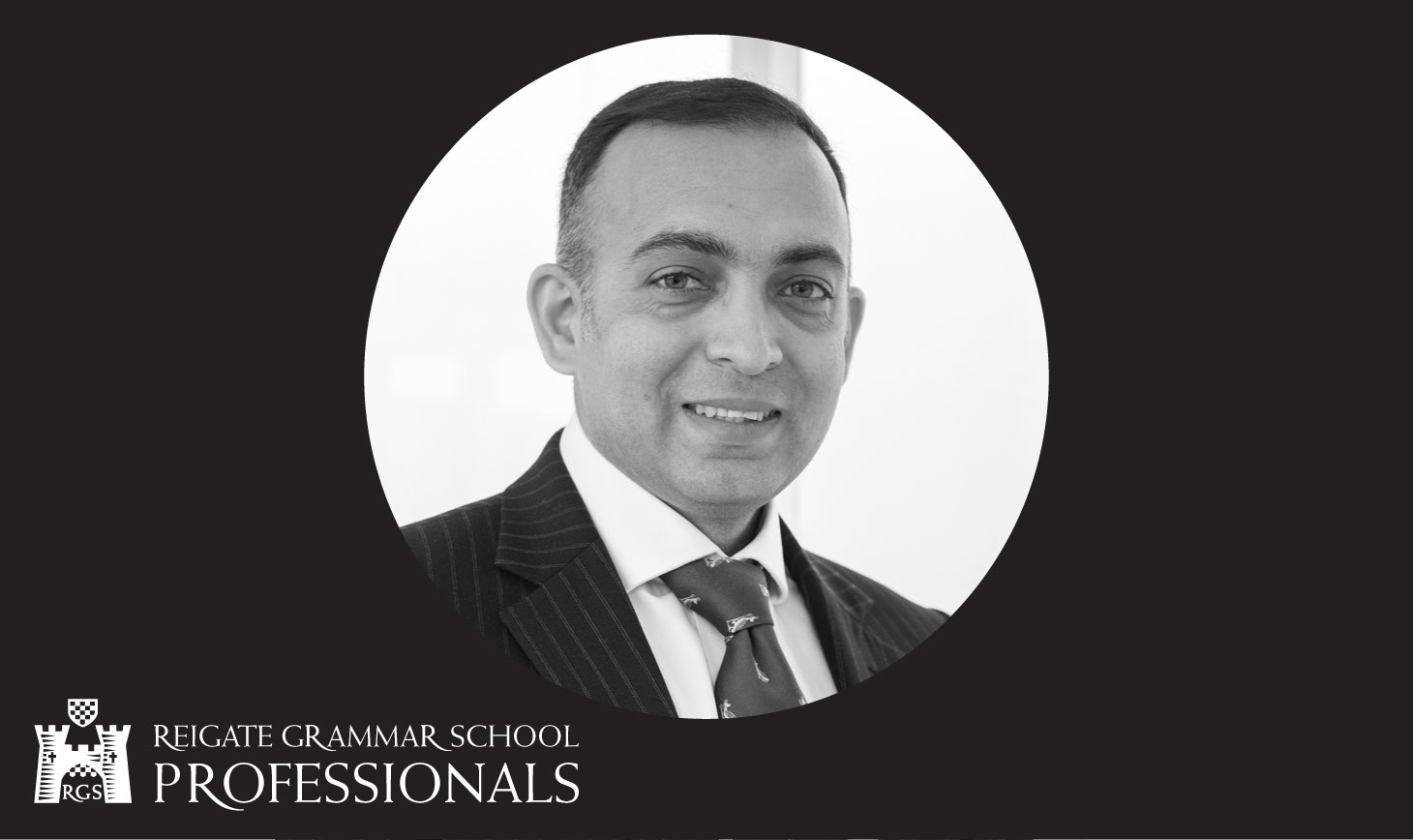
Spotlight interview: Aakshay Gulati
We are delighted to share with you our spotlight interview with Aakshay Gulati BDS FDSRCS MRCS FRCS (OMFS) (RGS parent), who is Consultant Oral and Maxillofacial Surgeon at the Queen Victoria Hospital in East Grinstead and Training Programme Director (Oral and Maxillofacial Surgery) for Kent, Surrey and Sussex. During the coronavirus pandemic, Aakshay has been working in one of the designated surgical cancer centres.
Briefly describe your role
I am a Consultant Oral and Maxillofacial Surgeon with a specialist interest in head and neck oncology and reconstructive surgery (at Queen Victoria Hospital NHS Foundation Trust in East Grinstead). I am dually qualified in medicine and dentistry and have completed fellowships in my area of interest following my surgical training.
My clinical role includes delivering a service that helps achieve early diagnosis of mouth, head and neck cancer and delivering high-quality treatment to my patients and supporting them through their journey.
I have a strong interest in teaching and as a result, wear various hats including being the specialty tutor in my hospital and, more recently, I have been appointed as Training Programme Director for Oral and Maxillofacial Surgery across Kent, Surrey and Sussex. I am also a visiting Professor and postgraduate course coordinator in Oral Surgery and Executive Officer of the European Association for CranioMaxilloFacial Surgery.
What drew you to oral and maxillofacial surgery originally?
During my junior doctor hospital posts, I was exposed to the special nature of oral and maxillofacial surgery and knew from then, that this would be my chosen field. The specialty combines knowledge from both dentistry and medicine making it uniquely placed to deliver the best possible care for most mouth, head and neck conditions. Surgically, it is quite challenging and very interesting, as equal emphasis is placed on both hard tissue and soft tissue surgical skills, and the work ranges from dento-alveolar surgery and facial trauma to head and neck cancer and reconstructive surgery.
What is the best thing about your job?
The best thing is to be able to help people, and restore form and function to help improve their lives.
What is the proudest moment of your career?
The completion of my 21-year journey of training with the support of my lovely wife and two children.
What inspires you?
To strive to perform beyond my potential.
What would you do (for a career) if you weren’t doing this?
Automobile designer.
What advice do you have for prospective dentistry candidates?
Go with an open mind and continue to challenge yourself.
Where is the best place you’ve travelled to and why?
The Maldives – purely because it is so different to any other place I’ve been and so far from day-to-day reality that it does really feel like Heaven on Earth.
If Hollywood made a movie about your life, who would you like to see cast as you?
Superman – solving problems!
How do you define success?
To be able to perform beyond what you thought yourself capable.
What are three career lessons you’ve learned thus far?
- Always challenge yourself.
- There’s no substitute for hard work.
- Lead by example.
What challenges have you faced in providing cancer care during the COVID-19 crisis?
One of the main concerns during the pandemic crisis is the treatment of cancer patients and ensuring there are no delays as resources in many hospitals were being directed towards treatment of patients affected by the coronavirus. With the expertise in head and neck cancer and reconstruction centred at QVH, this was named as one of the first designated surgical cancer centres in England. We were thus able to run this as a ‘COVID-light’ site and continue to provide cancer care to our patients across Kent, Surrey and Sussex. Various changes in practice were incorporated swiftly to ensure safe delivery of care to the patients, including screening, streamlining pathways, minimising footfall in hospitals, virtual clinics/ward rounds, etc. A key learning point for healthcare provision in general during the crisis, has been the ability of the NHS to innovate rapidly and incorporate technology – I’m sure some of these adaptations will be here to stay.
